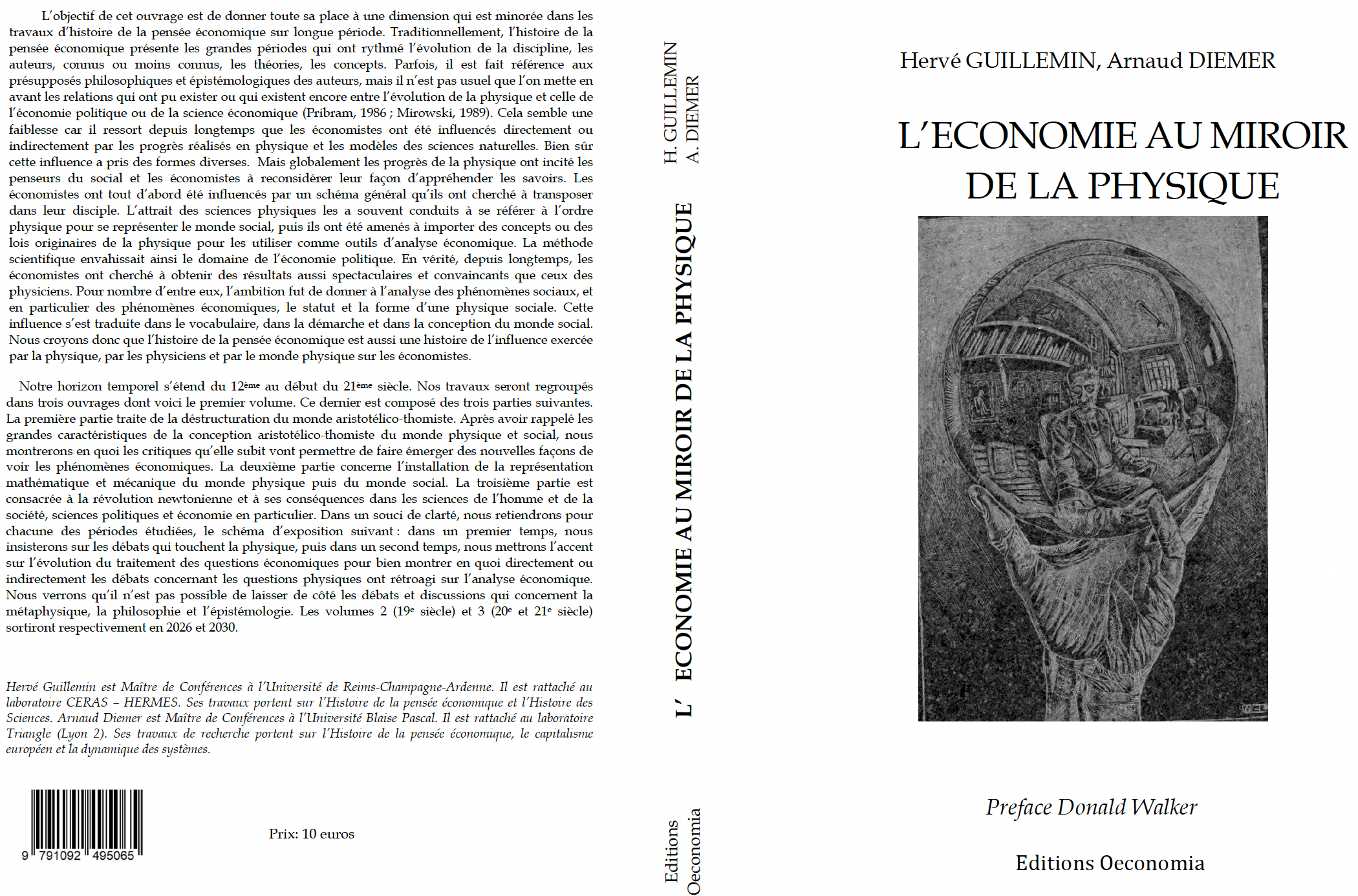Livres
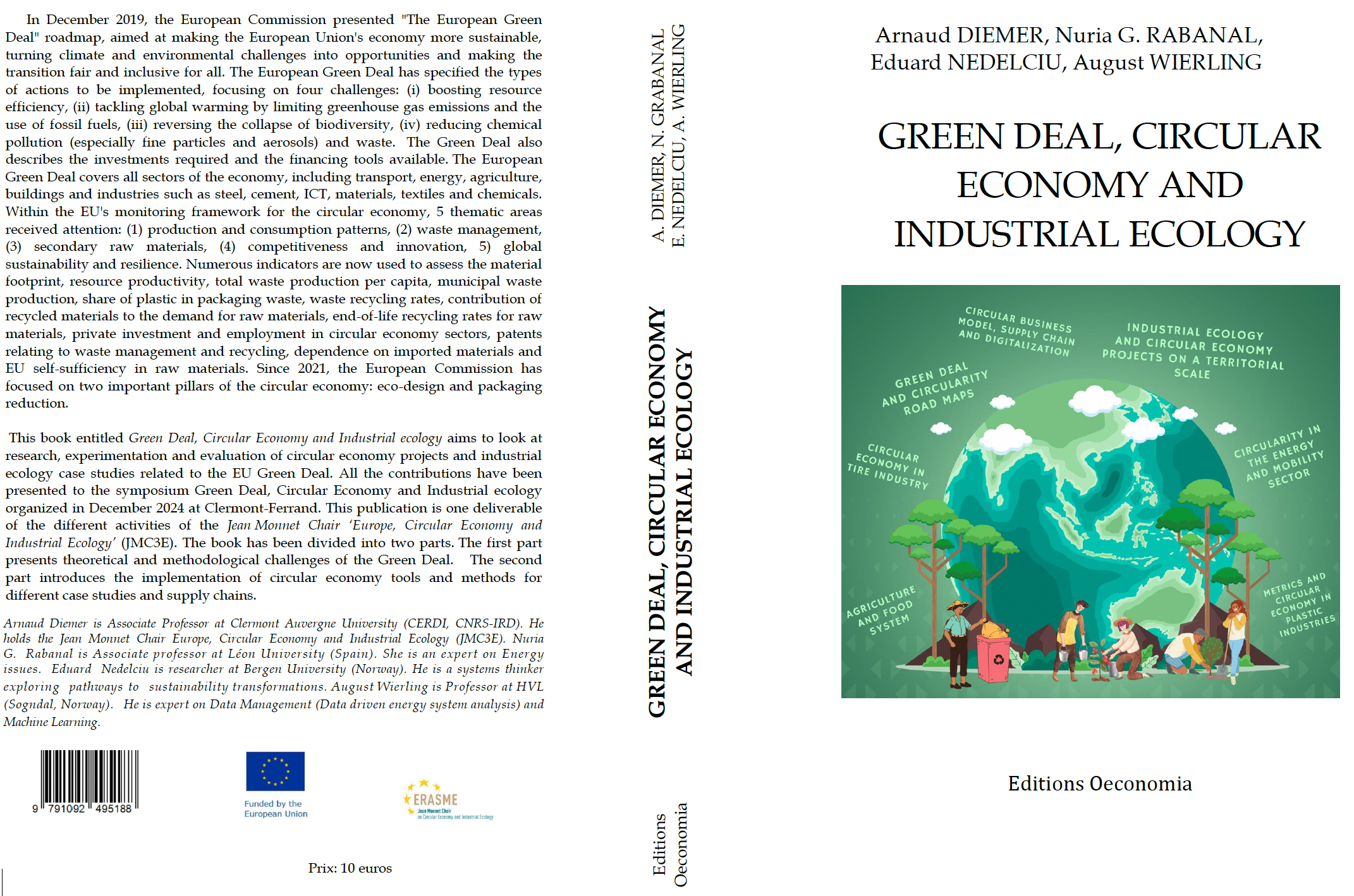
This book entitled Green Deal, Circular Economy and Industrial ecology aims to look at research, experimentation and evaluation of circular economy projects and industrial ecology case studies related to the EU Green Deal. All the contributions have been presented to the symposium Green Deal, Circular Economy and Industrial ecology organized in December 2024 at Clermont-Ferrand. This publication is one deliverable of the different activities of the Jean Monnet Chair ‘Europe, Circular Economy and Industrial Ecology’ (JMC3E). The book has been divided into two parts. The first part presents theoretical and methodological challenges of the Green Deal. The second part introduces the implementation of circular economy tools and methods for different case studies and supply chains.
Cover Book
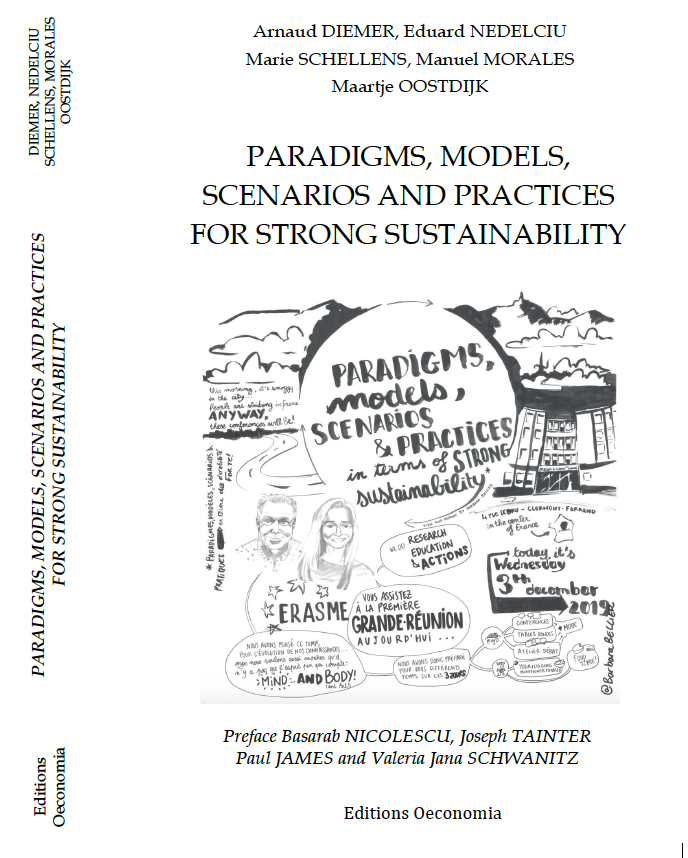
Strong sustainability is a mainly theoretical and radical concept and still has few empirical implementations in the real world, and many of these are small scale (reference). There are still many questions regarding the theory around strong sustainability and its implementation and assessment. In this book, we focused on several questions that are related to the concept of strong sustainability and its implementation. These questions are the following: 1° How do the different sciences approach the question of sustainability, are there important differences between the Social Sciences, Engineering Sciences, Life and Earth Sciences? 2° What are the dimensions and themes that embody or on the contrary escape the discourse on sustainability? 3° What are the paradigms that embody the very idea of strong sustainability today? 4° What are the models, methods and scientific tools that leave enough space for strong sustainability? The latter refers to the modelling of complex and dynamic systems. System thinking or system dynamics are often presented as appropriate methods to address system complexity (feedback loops, time effects and timelines) and sustainability at the global level (within the boundaries of the system under study). 5° Which scenarios by 2025, 2050 or 2100 most embody the idea of strong sustainability? 6° How to finance this sustainability? 7° How to assess sustainability? The latter is often put in tension, between scientific discourse, political debates and field practices. A sustainability assessment raises a set of questions and issues: What can be assessed (in terms of sustainability objectives)? Who can evaluate (in the sense of expertise)? How to evaluate (in terms of procedures, methods and indicators)? All the contributions in this book provide a view and perspective on strong sustainability. They have been collected in the following six parts: (1) Digressions on Strong Sustainability, (2) Paradigms for Strong Sustainability, (3) Transition to Strong Sustainability, (4) Education for Strong Sustainability, (5) Strong Sustainability in Developing Countries, (6) Arts and Science Communication on Strong Sustainability.
Cover Book
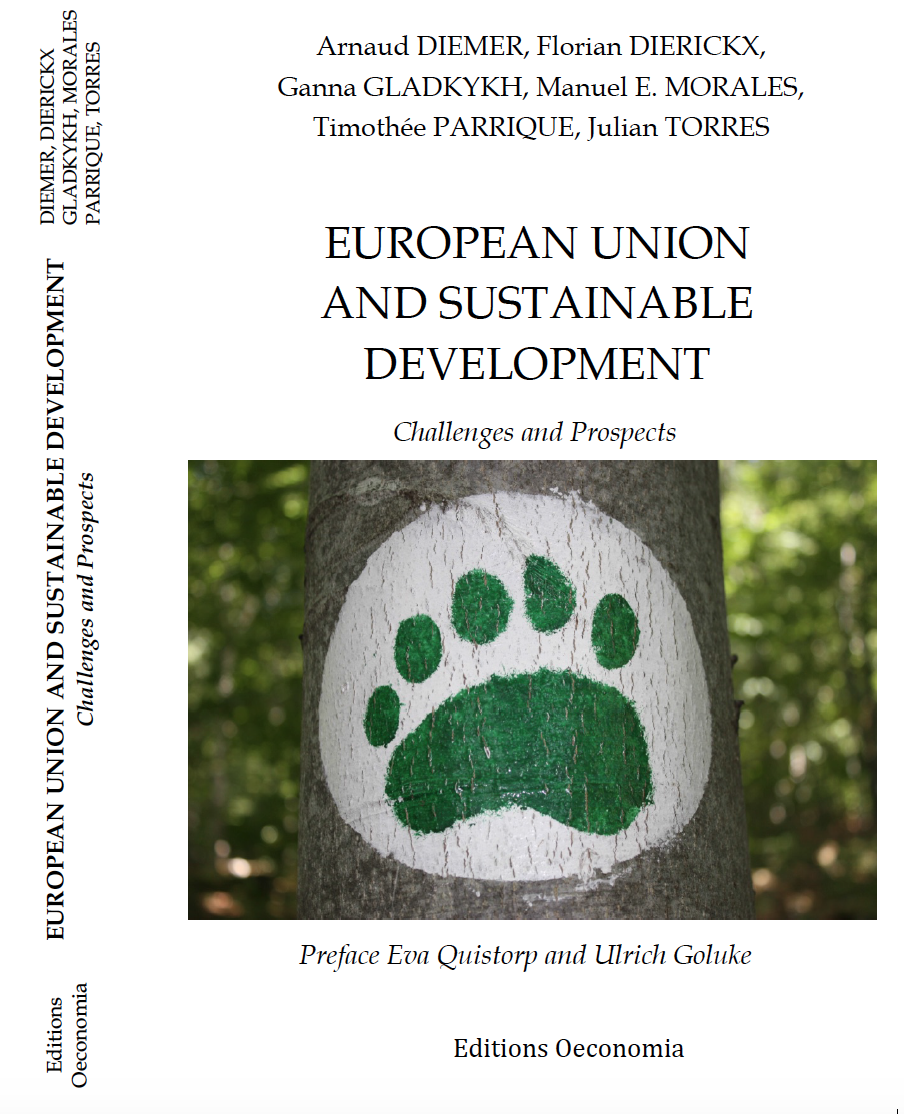
Since 2001, the EU’s contribution to sustainable development was associated with the Sustainable Consumption and Production and Sustainable Industrial Policy Action Plan (SCP-SIP). It included a series of proposals that would contribute to improving the environmental performance of products and increase the demand for more sustainable goods and production technologies. In 2014's report untitled « A Decent Life for All: From Vision to Collective Action », the European Commission recognized the need to build the right framework to put the world on a sustainable path to ensure a decent life for all by 2030. That book identifies challenges and opportunities for sustainable development in the European Union. The first part is concerned by the different dimensions (economic, social, cultural…) of sustainable development. The second part is focus on the thematic scope such as biodiversity, energy transition and climate change, industrial ecology, urban metabolism, food which are issues for the policy and the strategy of European Union.
Book in pdf
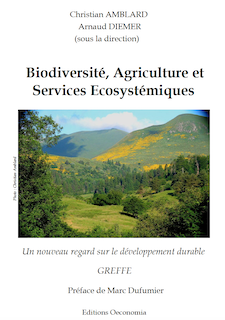
Le constat est accablant et les prévisions sont alarmantes. Depuis quelques décennies, nous sommes entrés dans l’anthropocène, une nouvelle ère de l’histoire de la terre qui résulte du fait que ce sont les activités humaines qui constituent maintenant le moteur prédominant des transformations majeures de notre environnement, à l’échelle planétaire, et non plus les forces dites « naturelles ». Les changements majeurs qui affectent la planète Terre en lien avec les activités humaines concernent le dérèglement climatique, l’effondrement catastrophique de la biodiversité, l’érosion des sols, la pollution généralisée, etc., autant de changements globaux qui affectent la planète entière. Dans ce contexte, et dans le cadre d’une prise de conscience grandissante d’une dégradation sans précédent de notre environnement, la nécessité de faire face à ce défi majeur pour la planète, en promouvant une transition écologique et solidaire pour un développement durable, s’imposenmaintenant à tous. Il s’agit, sans conteste, d’un changement de paradigmenpour le développement de nos sociétés.
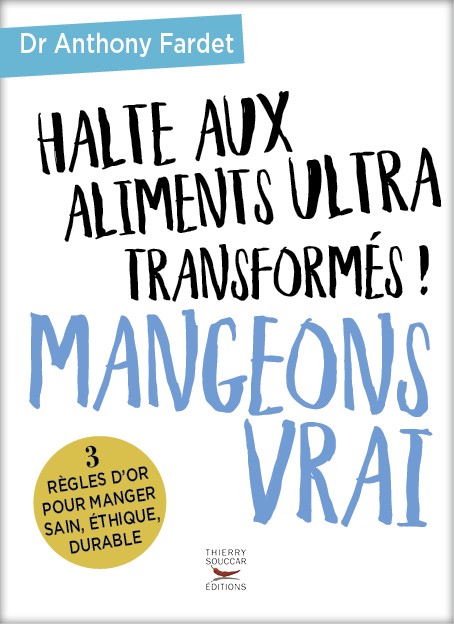
3Et si les conseils nutritionnels avaient tout faux ? Une fois ce sont les graisses qu'il faut éviter. Une autre fois les sucres. On colle des pastilles vertes, orange, rouges sur des emballages selon des critères surannés. Pendant ce temps, obésité, diabète et cancers progressent. Selon Anthony Fardet, les vrais coupables ce sont les aliments ultra transformés qui ont envahi nos supermarchés depuis les années 1980 – ils représentent jusqu'à plus de 50 % de l’offre alimentaire en grandes surfaces ! Ces aliments sont conçus au sein des centres de recherche et développement de Big Food. Objectif : fabriquer à bas prix des produits qui ressemblent à des aliments, qui ont le goût d'aliments... mais qui n'ont plus rien d'un aliment. L'ultra transformation déstructure l'aliment d'origine et lui fait perdre ses vertus santé. Elle nécessite aussi l'ajout d'une kyrielle d'additifs et d'agents " cosmétiques " suspects. Il est urgent de revenir aux fondamentaux. D'abord en sachant identifier un aliment ultra transformé et le livre en donne les caractéristiques, exemples à l'appui. Ensuite en mangeant vrai. Pour y parvenir, l'auteur révèle les 3 règles d'or d'une alimentation saine, durable et éthique selon une approche holistique pour préserver la durabilité des systèmes alimentaires. En revenant au « Manger vrai » nous pourrions gagner jusqu’à 10 ans d'espérance de vie en bonne santé.
